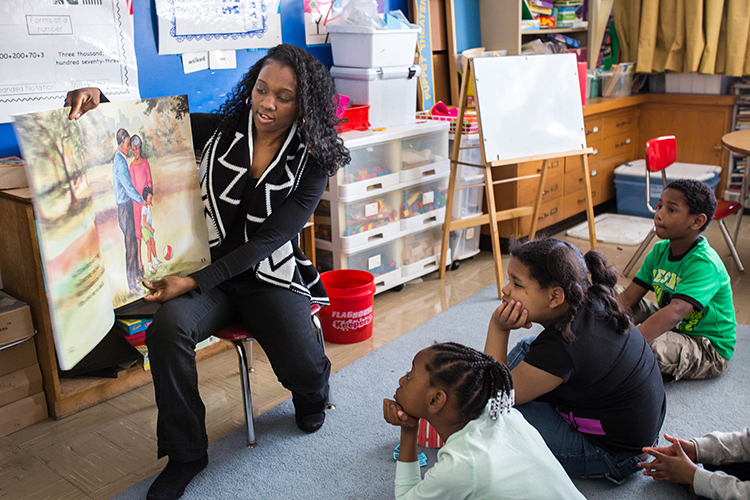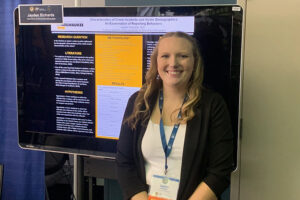With graduation just weeks away, Saidah Sheppard is wrapping up her second year of field placement at an elementary school, practicing her elevator speech and revising her resume for a UWM School of Education career fair.
In December, she plans to squeeze every penny she possibly can from her first paychecks as a full-time teacher and take her sons to Disney World.
“They deserve something good that’s just for them, even if it’s only for two or three days,” Sheppard says. “My boys have been through a lot.”
At 24, so has Sheppard. Since fall of 2012, she’s had a baby, gotten divorced and nearly left college twice. She credits her ability to make it through to the support she’s received from her immediate family and her UWM family, the Life Impact program for student parents. Since 2005, Life Impact has worked to break the cycle of poverty by supporting nearly 200 students who could most benefit from a college degree, but are least likely to graduate: low-income students raising young children. Life Impact has beaten the odds with a retention and graduation rate of 86 percent and an employment rate of 96 percent for new graduates.
Applications are being accepted through Friday, May 13, for fall 2016 students. Already enrolled UWM students and incoming first-year students are encouraged to apply.
The program’s small advising staff provides academic and emotional support, family workshops and career-planning services to Life Impact scholars. The personal attention changes lives, but the program’s financial support is key: Scholars receive $5,000 in tuition assistance and access to emergency funds that can help pay the rent, buy textbooks or even cover brake repair.
Sheppard enrolled at UWM in fall 2012 as a young mother with an associate’s degree in education from Milwaukee Area Technical College.
“I always wanted to be a teacher,” she says. “I was a tutor in middle school, and I helped a little boy who was struggling in reading get back on the right reading level. I feel I’ve always had a knack for it.”
Her UWM studies went well, but family life proved challenging for Sheppard and her husband. Married “super young” in 2008, Sheppard needed help to continue her studies after she and her husband divorced. She overheard a classmate talking about Life Impact and applied.
“I’m a good writer. I took my time with the admission essay. To tell you the truth, I just had a feeling: ‘This is it.’”
Life Impact allowed Sheppard to stay in college after the divorce. Her mother, a retired Milwaukee Public Schools teacher, watches the boys while Sheppard works and goes to class.
Still, there have been unexpected challenges. Junior year, Sheppard almost had to choose between repairing the brakes on her car and paying her rent.
Enter one Life Impact’s major innovations – access to emergency funds.
“It felt weird asking for money so I could pay rent and fix my brakes,” Sheppard says. “But the advisors were so welcoming when I did. Life Impact is really like a mini-family. Natalie Reinbold, the program manager, just met with me, and we went over my budget. They treated me like a regular person.”
The ability to meet many needs in one place is part of what makes Life Impact unique, said Lindsey Reichlin, a research associate at the Institute for Women’s Policy Research. “We haven’t seen a program quite like this in terms of combining the life coach aspect with services such as emergency funds. It’s pretty well-rounded.”
Sheppard loves parent-teacher conferences and is passionate about early literacy. She hopes to teach in the Milwaukee Public Schools, the system that educated her and now her sons. She also wants other young parents to apply to the program that helped her.
“I wouldn’t be able to be a teacher without Life Impact,” she says. “It’s a light at the end of the tunnel, telling you that you can finish college – or give you the support you need to start college if you didn’t think you could do it. You can.”







